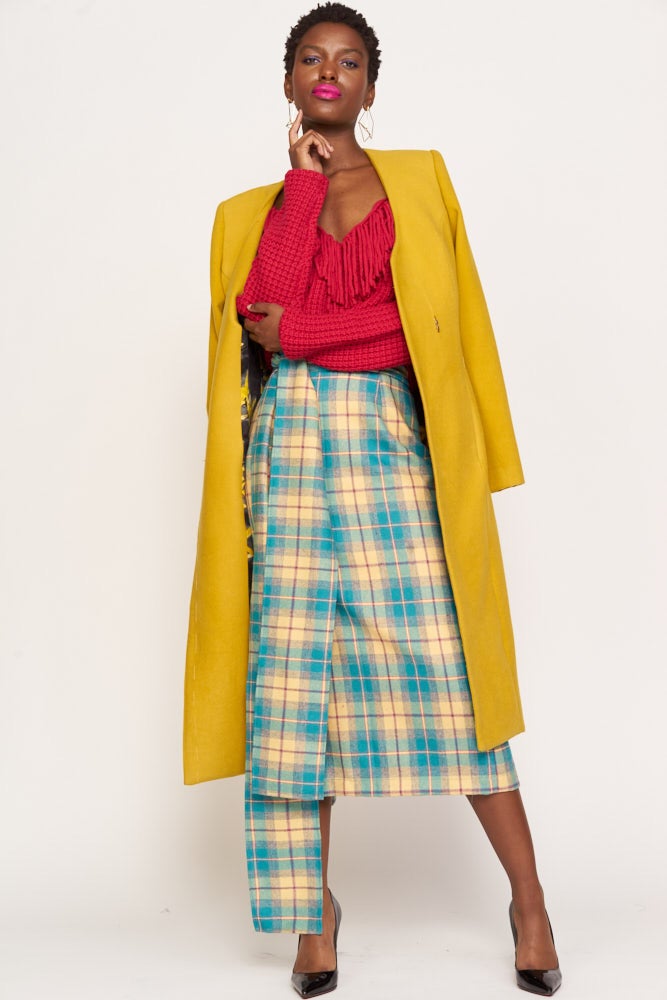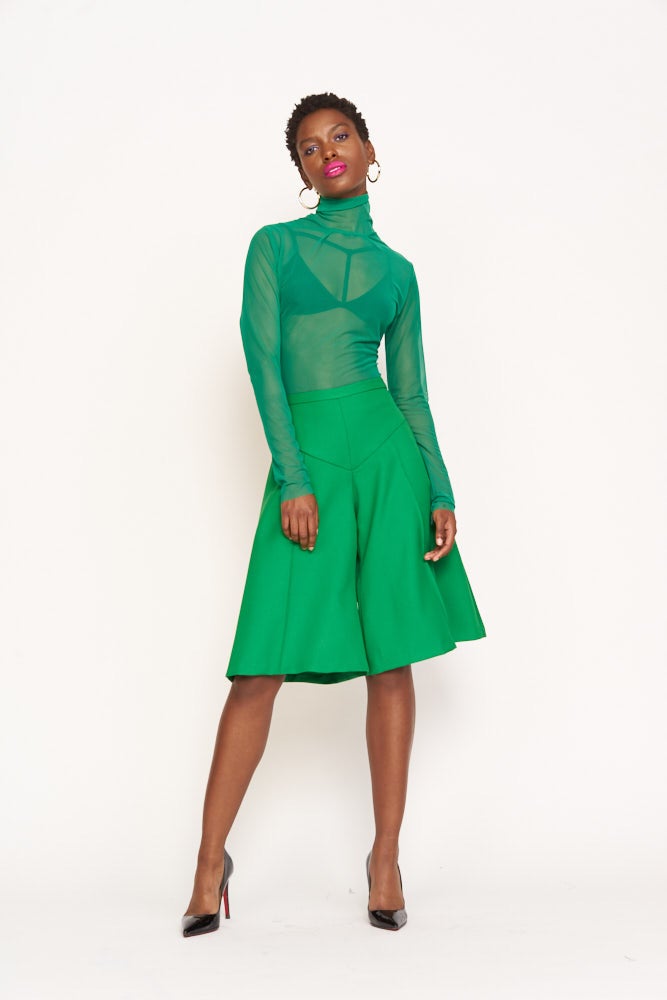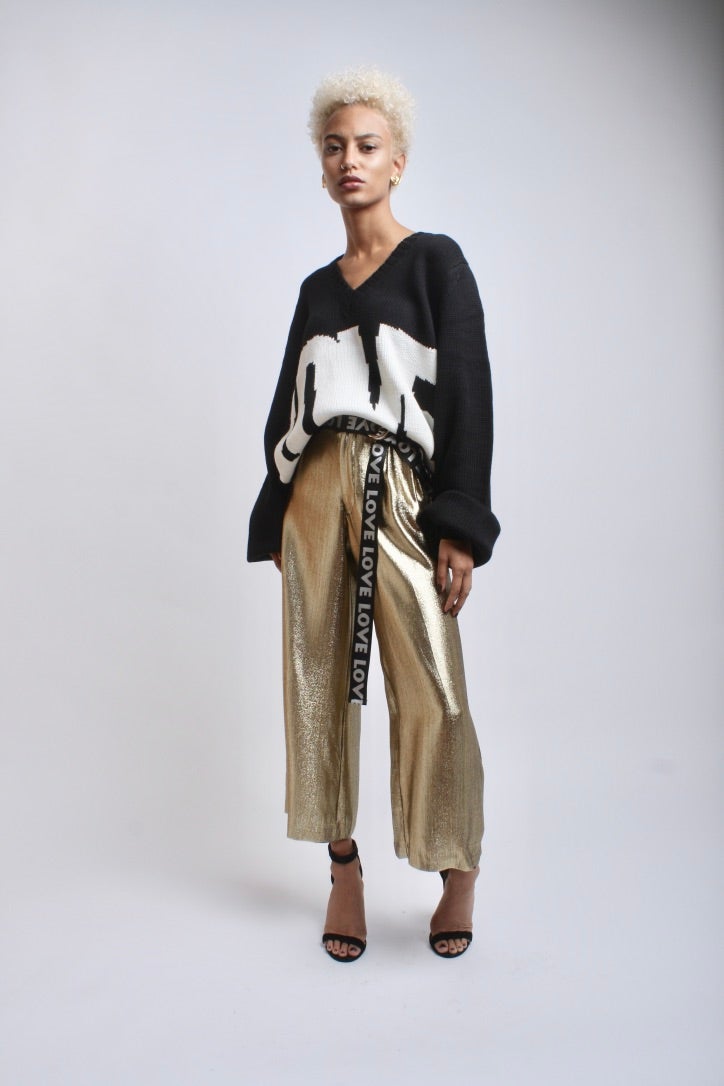
Take a page out of designer Undra Duncan’s book. A child of parents who migrated from Guyana to New York City, she has worked her way through the corporate fashion industry to now owning her own label, Undra Celeste.
Duncan’s interest in fashion grew from a seed planted at an early age, by watching her mother “transform” from her work attire into a glamorous wardrobe on the weekends. “[She has an] ability to get dressed regardless. No matter what’s going on in the world or in her life,” Duncan said of her mother. “It inspires me because I know there are women who are like that — who always want to look their best, because it’s a direct link to how they feel.”
Among her accomplishments in the industry, Duncan was one of three designers chosen to work on Lebron James’s signature Nike shoe in late 2018. The opportunity garnered a lot of recognition for the designer and her brand, however she tells ESSENCE that she walked away from the experience with a clearer outlook on what new, young designers should be aware of when working with larger brands—knowing 110% what you as a designer want out of the partnership. “If it’s money, don’t ever be afraid to ask for what you want, and make sure you get it,” she says. “Because the bigger brands—they have it. Don’t be afraid to walk away when they’re refusing.”

Despite the push for more representation in the fashion community, Black designers like Undra continue to face significant barriers to success. From securing investors to establishing retail support, forging pathways for long-term growth is critical. Recognizing these unique challenges and the opportunity to provide a platform for creative advancement, ESSENCE teamed up with Chase and classic American lifestyle brand, Lands’ End, to launch Banking on Style. This exciting program gave Duncan and two fellow emerging fashion designers a platform to elevate their brands through a powerful collaboration and design contest.
ESSENCE got a chance to chat with Duncan about what motivates her as a designer and her experience working with Chase and Lands’ End during the Banking on Style competition.
ESSENCE: How are you?
Duncan: It’s funny, because I’m in between. I’m going to take this time to really focus on my business, but then, you feel bad about that because there’s so much stuff going on around you. I actually wrote on my blog the other day about how I was feeling. In terms of being a Christian woman, you always want to promote peace and harmony, but at the same time, some things don’t require peace and harmony. Of course, anger and disappointment is always at the top of the list, but then, if you stay angry and disappointed, that’s not good for your mental health or even your physical health. So, I’m a little bit all over the place, but I’m okay.
ESSENCE: How has business been since Covid-19?
Duncan: The first few weeks that we went into quarantine, business came to a screeching halt. But then, I guess as people were feeling a little bit bored, retail therapy is a great thing, and things started picking back up a little bit. Am I at my normal rate? No. I have also to note, as a creative, I didn’t receive any of the stimulus relief that was given to businesses. I think a lot of Black creatives did not get it, and I was one of them.
ESSENCE: When did your love for fashion start?
Duncan: My mom was very into fashion. My parents are from Guyana, and when they came to this country, they took the jobs that immigrants normally take, like domestic help. I would notice with my mom and her sisters that, even though they would work so hard during the week, on the weekends they would each transform into Donna Summer when they went out. I started designing as a little girl. I would take clothes that I shouldn’t have taken and cut them up and make Barbie outfits. One of my great-aunts taught me how to sew when I was 10 years old, and I think from that point I was like, okay, this is what I’m doing.

ESSENCE: Is your Guyanese heritage at all reflected in your design work?
Duncan: I think it is, though I haven’t been to Guyana since I was a child. I’m more influenced by overall Caribbean culture. I know geographically, Guyana isn’t in the Carribeans, but due to colonization, they do have Caribbean heritage. I see how Caribbean women carry themselves—they don’t let the world beat them down. That strength that is part of that Caribbean culture—that vibrancy, that very high personality. I feel like that’s definitely part of who I design for, and it’s infused in all of my collections.”
ESSENCE: When you decided to start Undra Celeste, how did you secure the financial backing for your collection?
Duncan: I was a creative forever, and when I started my brand, funding was not even a part of my psyche, right? My psyche was, I had a day job, which was also in fashion, and I was going to scrimp and save and make the money to fund my business. That was the mindset.It wasn’t until this year that I actually got a business mentor, who said, “You need to start going after funding.” I’ve always had a business plan, but he tailored my plan towards looking for venture capitalists and angel investors. So, it’s hard, but I know it’s possible.

ESSENCE: How did it feel to be chosen to be a part of the Chase/ESSENCE Banking On Style initiative?
Duncan: Once I got to speak with the awesome team at Chase, and of course you guys at Essence because you’re always riding really hard for designers and creatives of color, I felt that was a safe space. And then once I got to really hear about the initiative, it sounded like a great opportunity. Meeting Deidre and Sergio was awesome. The whole experience has been amazing. The team at Lands’ End have been super professional, but also just helpful, and they’re really good people over there. Of course, I’m sad that we couldn’t present in person, but that’s out of everyone’s control.
ESSENCE: Did you bring any design elements from your brand, Undra Celeste, into the collection you designed for the Banking on Style competition?
Duncan: Color. My customer loves color and I love color. I think I do it well, but in a really elevated way. Bold prints were another thing. I design elevated workwear—fun, bold, modern, but still unique and professional. I wanted to bring that exact aesthetic to the Chase collection I created for consideration. It’s very much the core of my brand and, if my customer worked at Chase, what she would want to wear.
ESSENCE: What makes color so important to you in fashion?
Duncan: I think color is super important in general. Color can reflect a mood. It can reflect an experience. It can reflect a culture without saying a word. And my brand is a workwear brand for multicultural women. Color and print allow you to make statements and give a nod to who you are and who you aspire to be without you having to speak. Colors also have a vibration attached to them that speak to your mood.
ESSENCE: How do you want your brand to make consumers feel?
Duncan: I want every woman who comes in contact with the brand to feel confident, self assured, elevated. I feel like that’s what workwear should be. We try to sell confidence. I want you to feel like you can show up to work and just kill it because you feel good in your clothes.